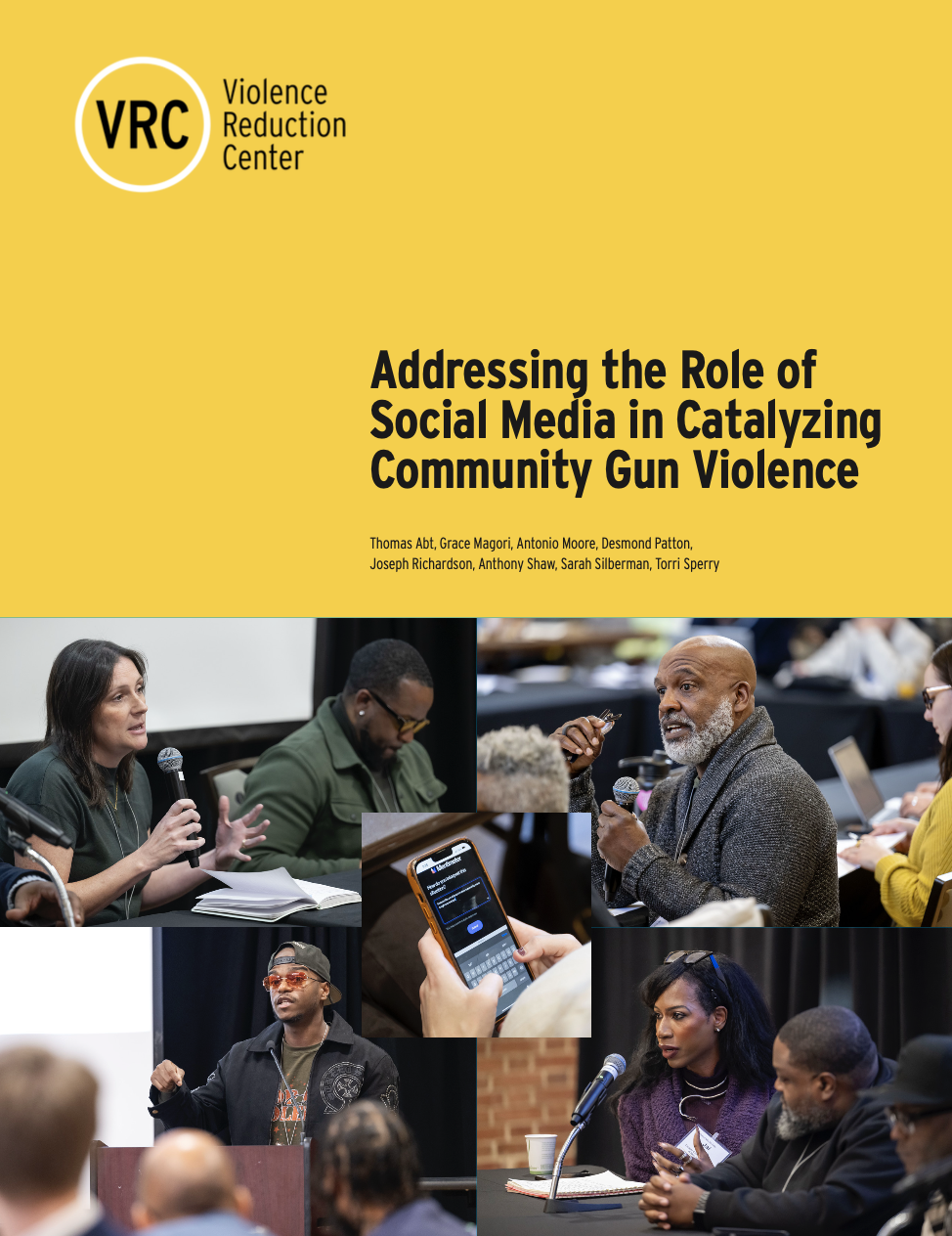Saving lives by stopping
violence, using science.
Gun violence is now the leading cause of death for youth ages 1-19, eclipsing motor vehicle accidents, drug overdoses, and accidents. This violence claims lives, fills prisons, and undermines momentum for criminal justice reforms.
Policymakers, practitioners, and the public need answers now. The Center for the Study and Practice of Violence Reduction (“the VRC”) provides solutions by combining rigorous research with practical know-how.
With an emphasis on community violence perpetrated with firearms, the VRC gathers the most rigorous research, synthesizes it, and then makes it available to all in accessible, easy-to-use formats. It also provides practical instruction to federal, state, and especially local leaders on how to choose, apply, and align the right combination of anti-violence strategies for their jurisdiction.
Our mission is simple: we seek to save lives by stopping violence using science. We pursue this goal guided by three principles:
-
Scientific Rigor. Leveraging academic expertise, we emphasize strategies supported by strong evidence of effectiveness.
-
Real-World Relevance. Leveraging practitioner experience, we stress the sound implementation of strategies in the real world.
-
Independence. We are nonpartisan, with no financial or other interests in the strategies we recommend.
All VRC products and services are provided free – we do not charge those who want help and are similarly committed to saving lives.
The VRC is part of the Department of Criminology and Criminal Justice at the University of Maryland. The department was established in 1969 and has become the #1 ranked criminology doctoral program in the United States.
Featured Resource
Addressing the Role of Social Media in Catalyzing Community Gun Violence
On March 5th, 2026, the VRC published "Addressing the Role of Social Media in Catalyzing Community Gun Violence," a white paper that documents discussions at the symposium, describes new strategies, proposes pilot programs, and identifies areas for future research.


